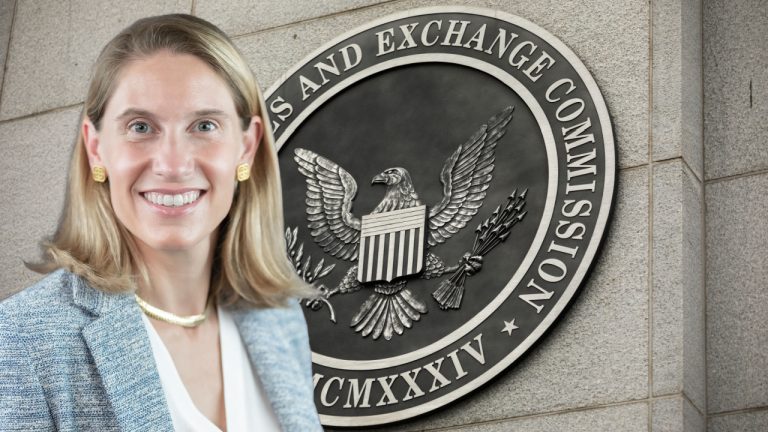
SEC Commissioner Caroline A. Crenshaw voices her dissent against the commission’s approval of spot bitcoin ETFs, highlighting the risks of market manipulation, the concentration of bitcoin ownership, and the inadequacy of current regulatory measures in safeguarding investor interests.
SEC Commissioner Critiques Spot Bitcoin ETF Approval
Following the SEC’s spot bitcoin ETF mass approvals, Commissioner Caroline A. Crenshaw has released a letter expressing her dissent, raising serious concerns about investor protection and market integrity.
Crenshaw’s dissent follows the SEC’s decision to approve rule changes allowing the listing and trading of bitcoin-based Exchange Traded Products (ETPs) on national securities exchanges. In her statement, she argues that these actions are inconsistent with the SEC’s mandate to protect investors and the public interest.
The Commissioner’s primary concern revolves around the underlying global spot markets for bitcoin, which she says are marred by fraud and manipulation. She points to examples such as the alleged bitcoin price manipulation by the former CEO of FTX to keep its price under $ 20,000 for his benefit. In somewhat of a head scratcher, Crenshaw also cites the recent hacking of an SEC social media account and subsequent false announcement of spot bitcoin ETFs, which led to volatile bitcoin prices, as indicative of potential market manipulation. After the false announcement had been revealed as a hack, some members of the crypto community had even joked that the SEC might use it as evidence to withhold approval.
“on second thoughts, bitcoin spot market is too easily manipulated (by us), so we’re denying the ETF”
— nic
carter (@nic__carter) January 9, 2024
According to Crenshaw, concentration of bitcoin ownership is also a concern:
Concentration of ownership among spot bitcoin holders also leaves bitcoin investors (and now spot bitcoin ETP investors) vulnerable to the whims and trading practices of a few. Analysis shows that mining and holdings of bitcoin are highly concentrated.
She argues that the spot bitcoin markets’ susceptibility to manipulation and the lack of adequate oversight make it difficult to say that the approved rule changes are designed to protect investors effectively.
In her critique of the recent Grayscale vs. SEC case, Crenshaw notes that the correlation analysis used to justify the approval of spot bitcoin ETPs is inadequate. She draws attention to the significant differences in investor protection between futures and spot bitcoin ETPs, likening the latter to an unregulated, global free-for-all, with little recourse for investors in cases of fraud or manipulation.
She criticizes the creation of a new regulatory standard without clear guidelines and questions the reliability of the data used in the SEC’s correlation analysis. In a broader critique of the cryptocurrency ecosystem, Crenshaw questions the tendency to recreate the existing financial system with less regulation and more risk, diverging from the original ideals of Bitcoin as a peer-to-peer, censorship-resistant digital currency. She fears that linking Bitcoin too closely to the traditional financial system may not serve the interests of investors but rather inflate the prices of these investment products.
Are you receptive to any of Commissioner Crenshaw’s concerns? Share your thoughts and opinions about this subject in the comments section below.
Bitcoin News








Leave a Reply
You must be logged in to post a comment.